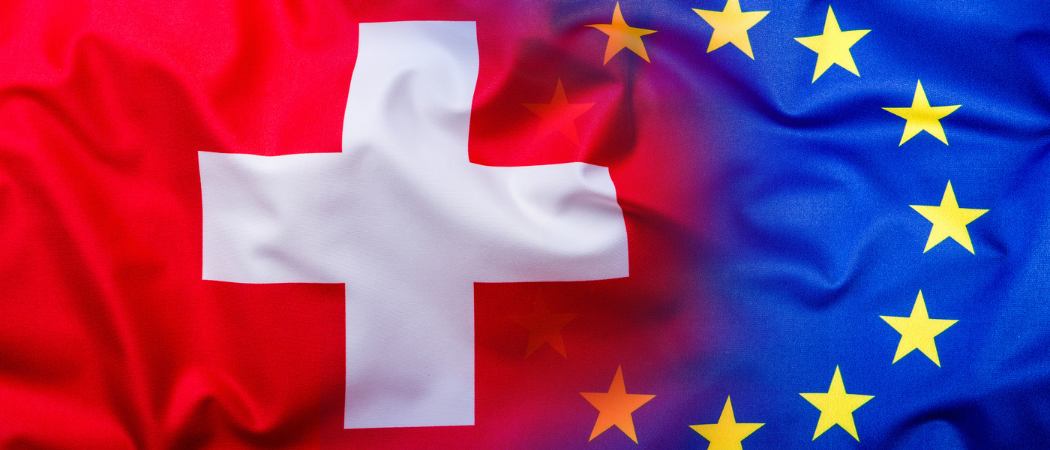At long last, Swiss researchers will have near full access to the EU programme. But a 2028 referendum could scupper FP10 participation

Photo credits: BigStock
After four years of waiting, Switzerland has finally agreed a deal with Brussels that will allow its researchers to participate as equals in the EU’s Horizon Europe research and innovation programme.
Today, Brussels and Bern announced they had finally sealed deals in several sectors – food safety, electricity, health, and disease control – meaning the European Commission has unlocked full Horizon Europe association from 2025, as well as the Euratom nuclear research programme.
“I welcome this very positive development, which in turn improves Europe’s resilience, prosperity, competitiveness and well-being,” said research commissioner Ekaterina Zaharieva in a statement. A separate agreement will cover Swiss participation in the European Space Agency.
At a press conference today explaining the deal, trade commissioner Maroš Šefčovič, who has led talks with Bern, said Horizon Europe association was a major win. “Switzerland and Swiss researchers can actively participate in the biggest research and innovation programme in the world,” he said.
However, there is a risk that Swiss voters could reject the deal in an as-yet unscheduled referendum. Swiss researchers should at least be safe until the end of Horizon Europe, but Šefčovič said today that the provisional agreements allowing association will expire at the end of 2028, a year after Horizon Europe is set to end. After that, unless the deal is ratified by Swiss voters, they will expire.
The umbrella body swissuniversities welcomed the agreement. President Luciana Vaccaro, said it was of “existential importance for Switzerland that its universities can continue to play a leading role in the European research and education landscape.”
Today’s deal ends – at least for now – the saga of Swiss association which began in 2021, when Bern pulled out of negotiations to push for a new overarching deal governing bilateral relations with the EU.
Brussels responded by blocking Swiss access to the programme. Switzerland-based researchers were shut out of the European Research Council (ERC) grants, and could only join industrial-academic consortia – so called Pillar II of the programme – using their own national funding, suddenly making participation a much bigger administrative headache.
This hiatus has cost Swiss universities dear. For example, at the Swiss Federal Institute of Technology Lausanne, there was a participation fall of 20% compared to Horizon 2020, the predecessor programme. Swiss research leaders said it was harder to recruit academics without the prospect of being able to apply for ERC grants.
That said, Switzerland manged to stay in joint EU projects better than the UK, which was also excluded due to higher level political strife until the beginning to 2024.
Despite the collapse of talks in 2021, Brussels and Bern began talking again behind the scenes on a more modest, sectoral package of deals, and in 2023 began a series of public negotiating milestones that culminated in today’s agreement.
Given this progress, Swiss researchers have already been allowed back into parts of the programme – for example, some ERC calls this year. But today’s breakthrough means this full re-entry into the programme from next year is now confirmed, although as a non-EU member state, Switzerland could remain excluded from a handful of sensitive calls on quantum technologies.
Referendum looms
This isn’t quite the end of the story, however. Swiss politics dictates that the new package deals will be put to a public referendum, and the right-wing populist Swiss People’s Party, which topped federal polls last year, is already campaigning against today’s agreement. Swiss research leaders are hopeful of a win, but are still worried a referendum could again scupper participation later in the decade.
So far, the date and details of the votes remain unclear. The Swiss government could decide on individual votes on each sectoral deal, and some Swiss media outlets have reported it could be until 2028 until a vote is held, as various levels of Swiss democracy have their say.
A rejection of the deal by Swiss voters could stop the country from joining Framework Programme 10, the successor to Horizon Europe, set to start in 2028.
Still, today’s announcement ties up one of the last remaining loose threads of Horizon Europe, with Switzerland rejoining the UK, a fellow neighbouring science heavyweight, back in the programme after years of exclusion.
Further afield, Canada, South Korea and New Zealand are also on board, having negotiated association to Pillar II. Singapore and Japan are also in talks to join.





 A unique international forum for public research organisations and companies to connect their external engagement with strategic interests around their R&D system.
A unique international forum for public research organisations and companies to connect their external engagement with strategic interests around their R&D system.